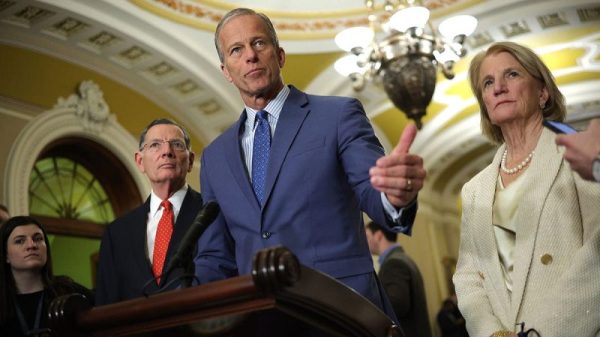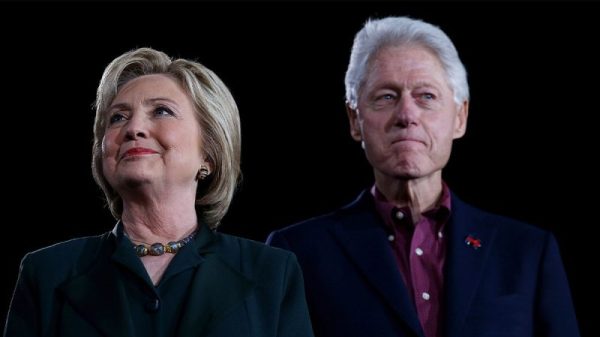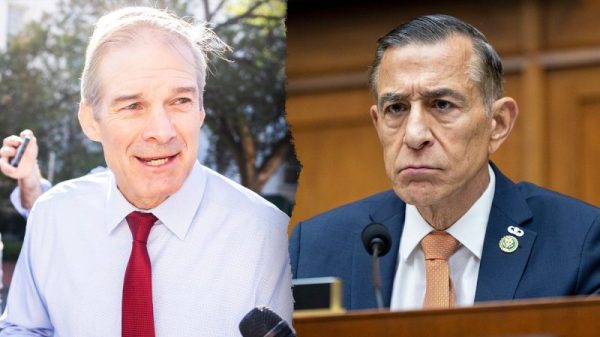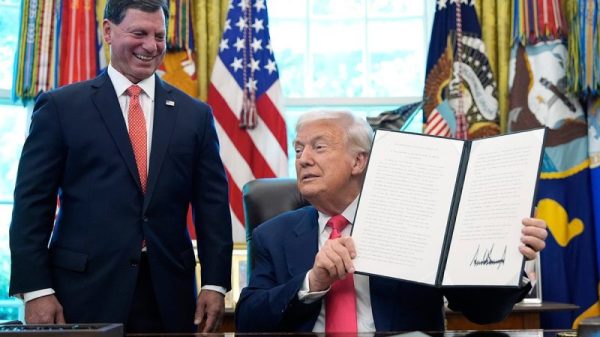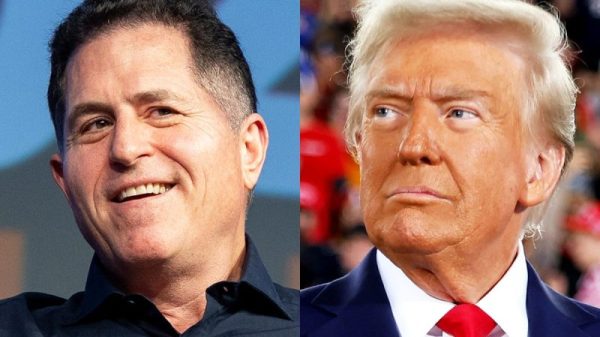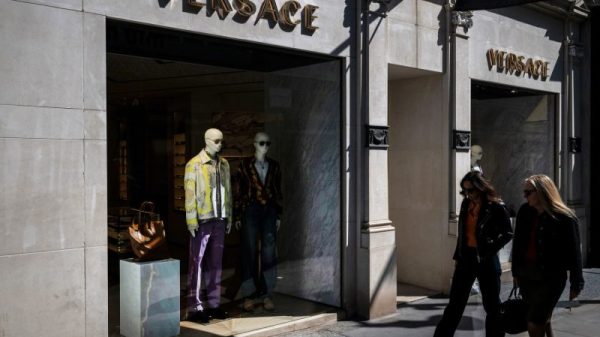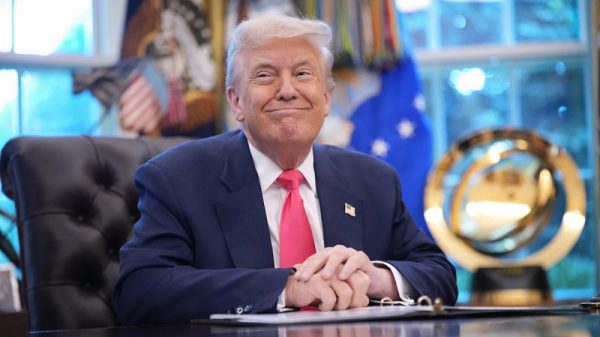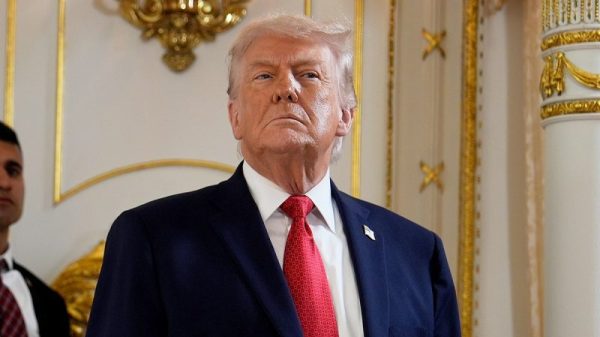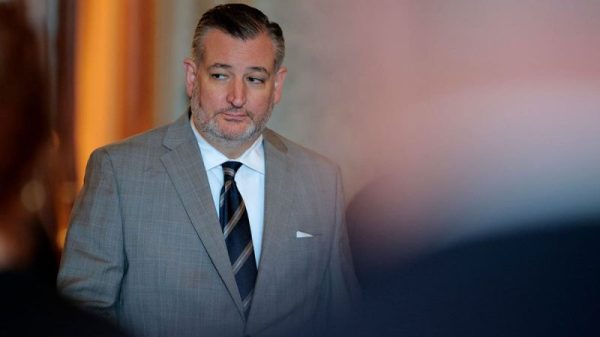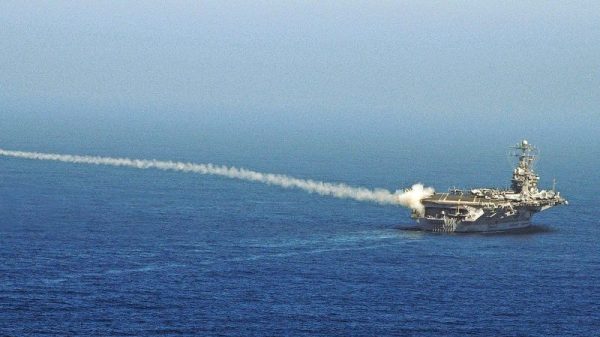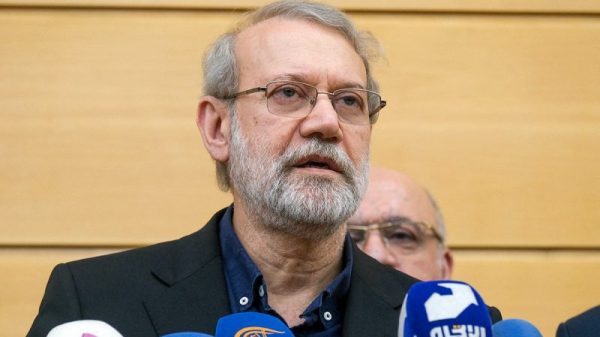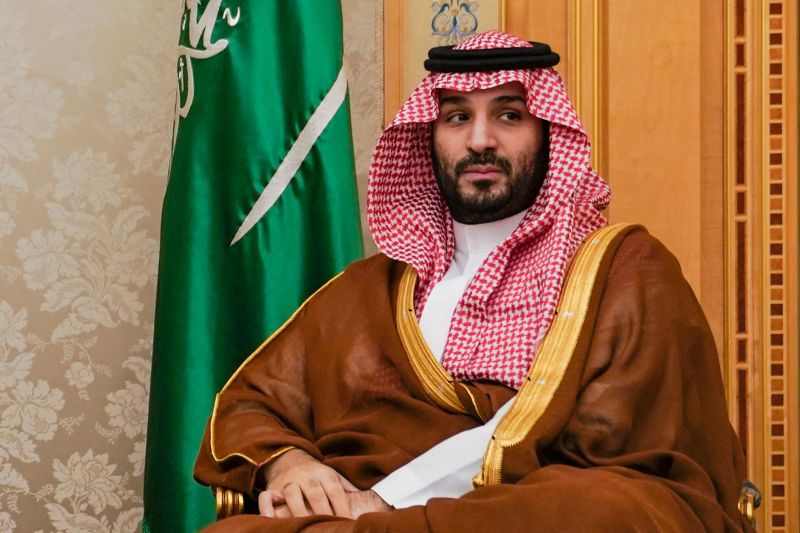Saudi Arabia will host top American and Russian officials on Tuesday for a high-stakes rapprochement meeting – a role that underlines the kingdom’s aspirations to become a global actor capable of successfully mediating international conflicts. Another likely aim: added leverage for Riyadh in future talks on the fate of postwar Gaza.
The location for these talks – described by Kremlin spokesperson Dmitry Peskov as one that “generally suits” the United States and Russia – is widely considered a win for the kingdom’s 39-year-old de facto leader, Crown Prince Mohammed bin Salman. He’s on a mission to transform his oil-rich country and its fundamentalist Islamist past, into a nation that can cultivate soft power from immense wealth.
“I don’t think there’s another place where the leader has such a good personal relationship with both Trump and Putin,” Saudi commentator Ali Shihabi said, adding that for “Saudi Arabia, (the event is) prestigious and enhances the Saudi soft power regionally and globally.”
It’s all part of a wider shift. In recent years, Saudi Arabia has realigned its policies towards neutrality in global conflicts with the hope of attracting billions of investments that could help achieve “Vision 2030” – the crown prince’s plan to diversify the Saudi economy away from oil. Prince bin Salman has significantly pulled back from Yemen after years of war with neighboring Houthis, he is mending ties with regional rival Iran and has maintained close relationships with China and Russia – all while preserving the close Saudi relationship with the West.
Ties with both Putin and Trump
In addition to hosting international boxing bouts and electronic music festivals, Saudi Arabia has sought to project an image of being a global peacekeeper, hosting aid donor meetings and peace conferences. In August 2023, it hosted a two-day peace summit on Ukraine with representatives from more than 40 countries (albeit without Russia), and in February of the same year, pledged $400 million in aid to Ukraine.
Prince bin Salman’s ascension as a powerbroker in the talks stem from his close relationship with US President Donald Trump, who supported the young royal when he was internationally shunned following the killing of columnist Jamal Khashoggi by Saudi agents.
In 2017, Trump broke with tradition by choosing Saudi Arabia for his first international presidential visit. Even after he lost the 2020 election, Saudi Arabia continued close business ties with Trump, investing $2 billion in a firm chaired by his son-in-law Jared Kushner and announcing plans to build Trump towers in the kingdom.
The crown prince also has warm ties with Russian President Vladimir Putin, who refused to isolate the prince after the Khashoggi murder. Prince bin Salman resisted Western pressure to alienate Moscow after Ukraine’s invasion and continued coordinating closely with Putin to control global oil supply, even siding with Russia by rebuffing calls from the Biden administration to ramp up oil production in 2022. Putin visited the kingdom in 2023 and has courted Riyadh to join BRICS – a bloc of countries seeking to counter US economic influence.
The hedging of Saudi Arabia’s relations in an increasingly polarized world has proven beneficial, analysts say. Prince bin Salman was “instrumental” in the release of American teacher Mark Fogel from Russian custody last week, Trump’s envoy to the Middle East Steve Witkoff said. Saudi Arabia, along with its neighbor the United Arab Emirates, was also successful in mediating several prisoner exchanges between Ukraine and Russia.
On Monday, Witkoff joined US National Security Adviser Mike Waltz and Secretary of State Marco Rubio for a meeting with Prince bin Salman in the Saudi capital Riyadh, just one day ahead of the scheduled talks with Russian Foreign Minister Sergey Lavrov, Putin’s aide Yury Ushakov and Russia’s sovereign wealth fund chief Kirill Dmitriev.
Notably, Tuesday’s talks will not include Ukraine. However, President Volodymyr Zelensky, who is in the United Arab Emirates capital Abu Dhabi, said he will travel to Saudi Arabia later this week for separate talks with Saudi officials.
European leaders will be meanwhile meeting in Paris to discuss a coordinated response to the talks in Saudi Arabia, having been left out of direct participation – a signal from Washington that Europe’s security role may no longer be a priority for the United States.
An eye on Gaza
Longer term, Saudi Arabia may aim to use its role as a mediator in the meeting between Russia and the US to capitalize on a pressing regional matter – Trump’s controversial suggestion that the US take ownership of Gaza and permanently relocate its residents.
Earlier this month, Trump laid out a vision of bringing peace to the Middle East by redeveloping the war-torn Gaza strip with “Riviera”-style premium housing and permanently relocating its more than 2 million residents.
Arab countries swiftly rejected the idea. There will be a summit at the end of this week in Saudi Arabia where a counter proposal will be discussed before presenting it to Trump.
“By facilitating President Trump’s stated goal of ending the Ukraine war, Saudi Arabia is well-positioned to accumulate goodwill in Washington. The kingdom, which is scheduled to host a mini-Arab summit on Friday, could capitalize on its rising stock with the Trump administration to help bridge the gap between the US and Arab positions on the fate of Gaza,” said Hasan Alhasan, senior fellow for Middle East policy at the International Institute for Strategic Studies in Bahrain.
The next four years could see Prince bin Salman banking on his close relationship with Trump – but the prince may still find himself in tough spots trying to balance his regional interests amid aggressive demands from the transactional American president.
Trump would like to see Saudi-Israel relations normalized, but amid growing anger in the Middle East over Israel’s military campaign in Gaza, defending a path to Palestinian statehood is politically non-negotiable for Prince bin Salman.
“Achieving lasting and just peace is impossible without the Palestinian people obtaining their legitimate rights in accordance with international resolutions, as has been previously clarified to both the former and current U.S. administrations,” the kingdom said in a statement earlier this month in reaction to Trump’s Gaza plan.

